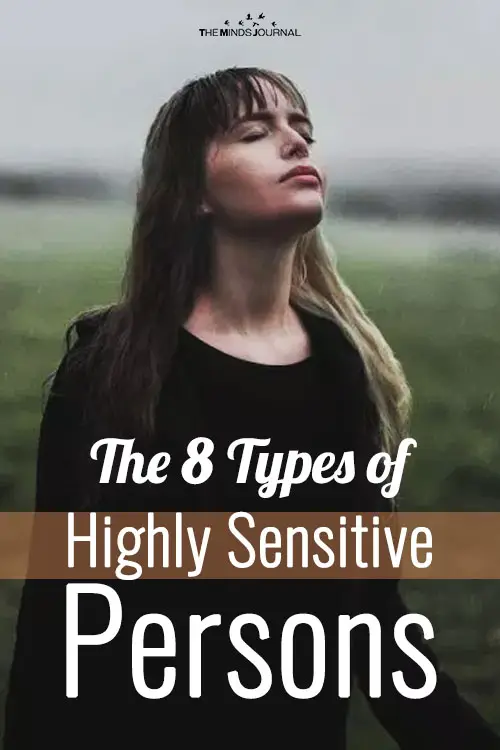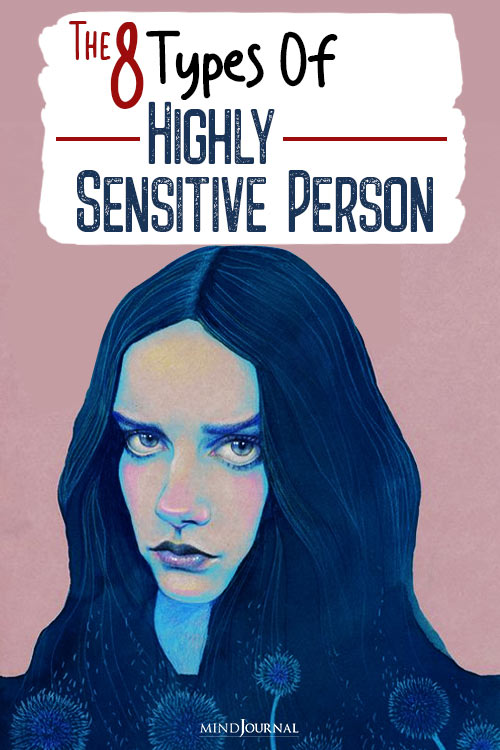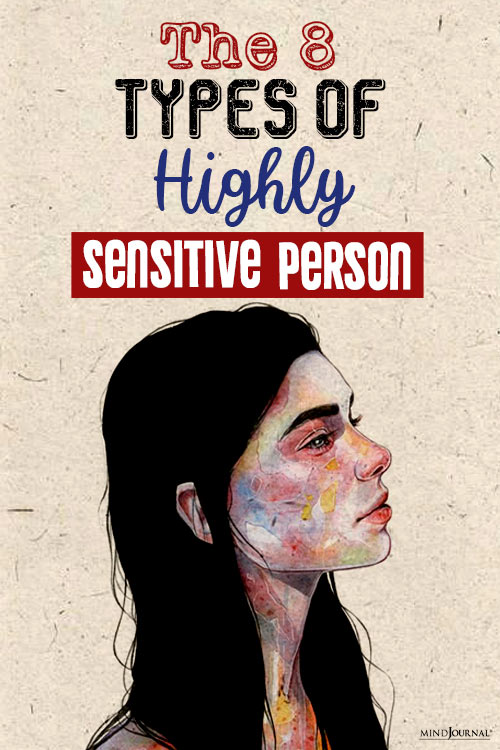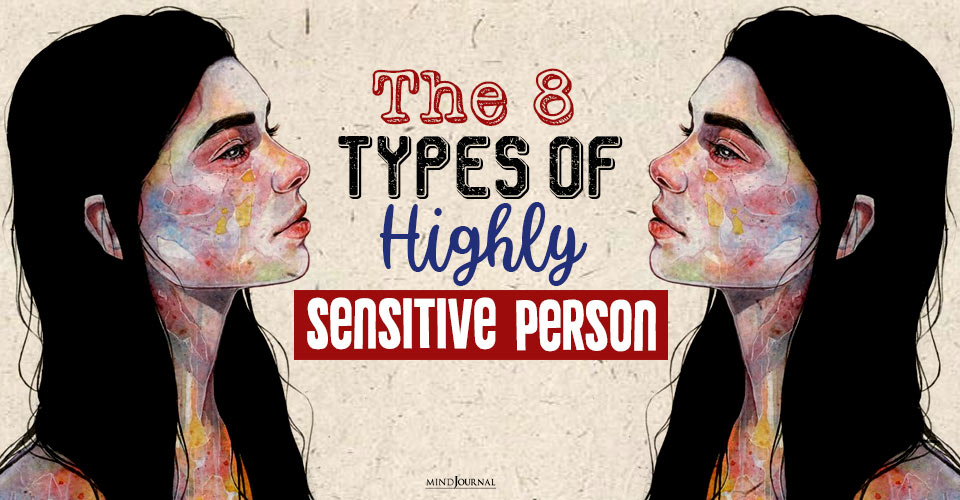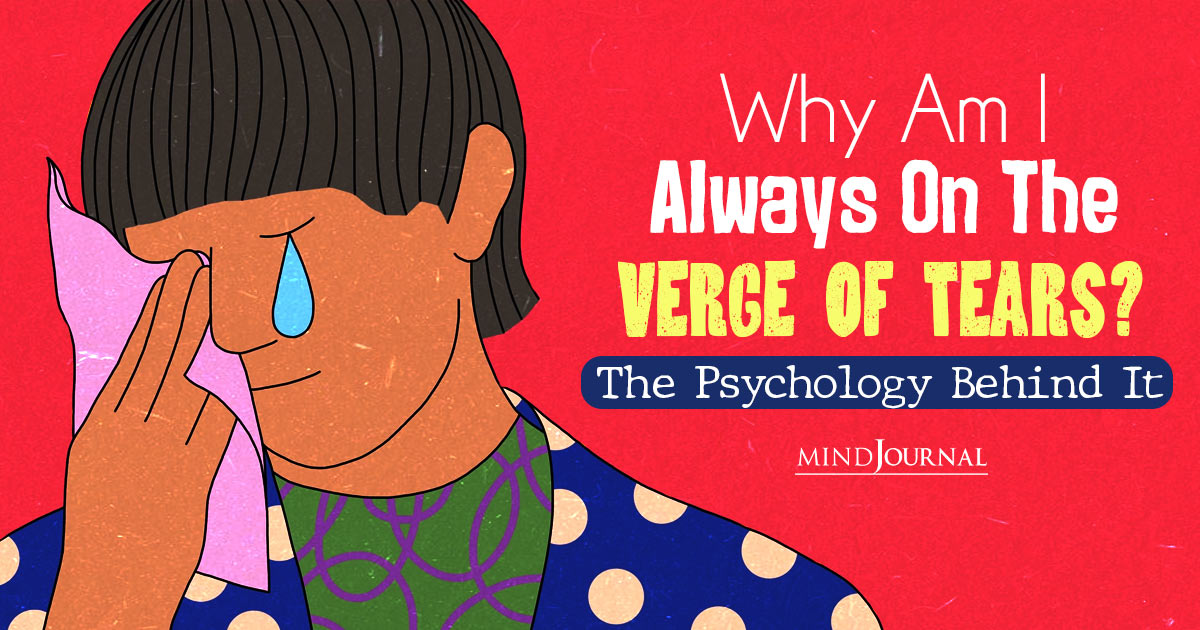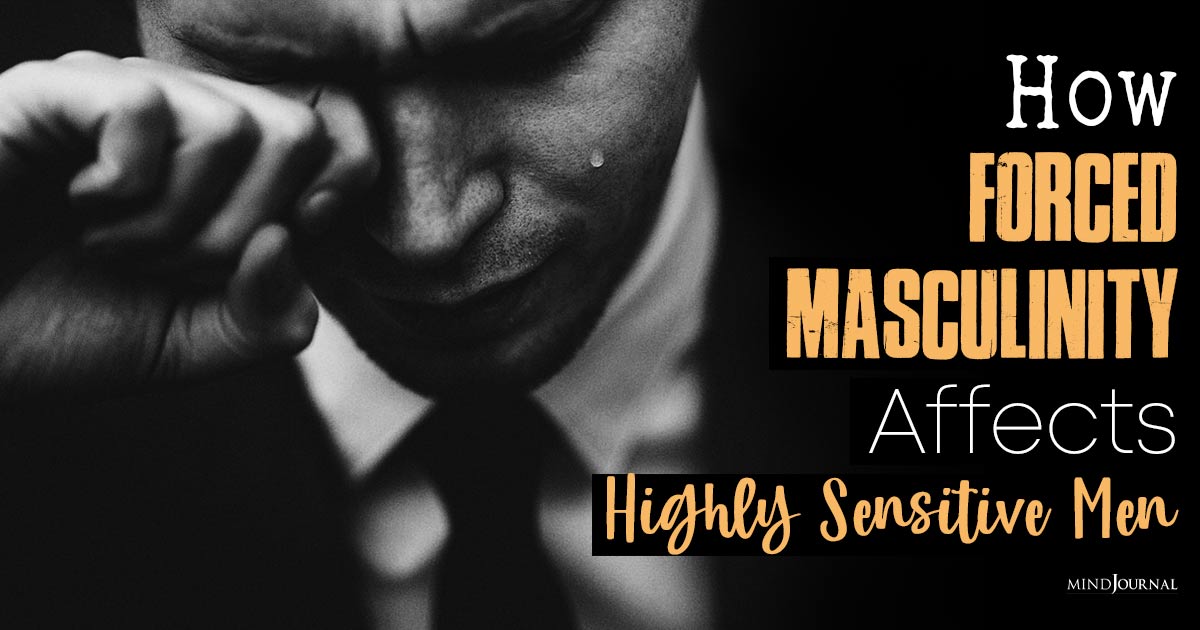Are you a highly sensitive person? Highly sensitive people or HSPs experience the world differently. They feel and sense everything in an intense way. But as there are different types of Highly Sensitive Person, it can often be difficult to identify what type of an HSP you are.
With over 20 percent of the population being HSPs, each highly sensitive person is unique and have different experiences in life. They feel and perceive things with different levels of awareness. Research on highly sensitive person show that different sensations like sights, sounds, tastes, smells, and other tactile sensations, as well as the emotional energy of other people, affect them deeply. People with a highly sensitive personality are deeply perceptive and experience senses acutely. They tend to give a strong reaction to their environment. And each sensitive person is beautiful in their own way.
Types of Highly Sensitive Person
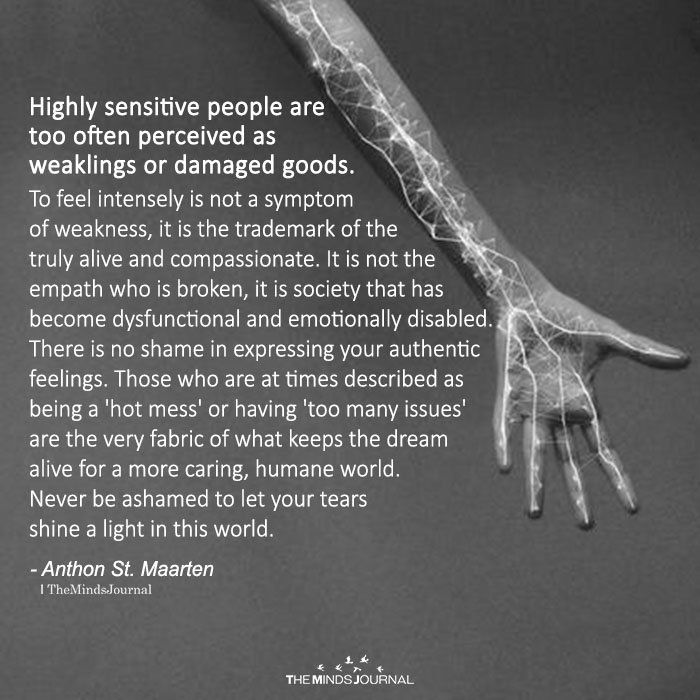
Not all sensitive people are the same. There are different types of highly sensitive people around the world and various studies have been conducted to understand their unique intuitive personalities. As different people tend to be sensitive in different ways, identifying the various types of highly sensitive people is challenging to say the least. The sheer range of sensitivities can feel overwhelming to HSPs and the people around them. Although they have a receptive nervous system and share some common traits, no two highly sensitive persons are alike as they express their sensitivities differently.
Here are the 8 most common types of Highly Sensitive Person that you need to know about.
1. Orchid Children
According to Bruce J. Ellis, PhD, professor of Family Studies and Human Development at the University of Arizona, some children are usually “biologically sensitive to context”. It means these children are more sensitive to different factors and changes in the environment than other normal children who can adapt & thrive in whatever environment they are in. According to a 2018 study on environmental adaptability in children, it was found that around 30 percent of kids were Orchid Children.
Regarding this issue, Prof. Ellis stated –
“Nurtured with quality parenting and programs, orchid children can blossom spectacularly into society’s happiest, most productive people. Conversely, given poor parenting and sketchy surroundings, they are at greater risk to end up wrestling with depression, substance abuse issues and even jail.”
2. Sensory Defensive Person
One of the unique types of Highly Sensitive Person are the sensory defensive individuals. Psychologist Sharon Heller, PhD has found that sensory defensive people tend to be more sensitive to sensory information than others. Author of “Too Loud, Too Bright, Too Fast, Too Tight: What to Do If You Are Sensory Defensive in an Overstimulating World”, Heller has studied HSPs and has developed the term to define individuals who are exceptionally sensitive to different stimuli.
Some characteristics of highly sensitive people from this category include –
- Getting easily startled by sudden and loud noises
- Being very sensitive to touch and highly ticklish
- Feeling uncomfortable in crowded places
- Disliking specific food textures
- Being uncomfortable with too much visual stimulation
- Being overly sensitive to strong odors
- Disliking certain textures on their skin
Moreover, sensory defensive people may tend to have certain disorders like schizophrenia or learning difficulties in extreme cases.
3. Thin Boundary Person
This is another rare types of Highly Sensitive Person. While conducting a study on people who suffered from nightmares regularly, Ernest Hartmann, MD of Tufts University found out that HSPs tend to recall their dreams in vivid details. These individuals are believed to have “thin boundaries”. This means a small percentage of individuals have a strong link between their mental functions & mental processes.
Some of the characteristics of thin boundaries people include –
- Higher risk of illnesses and allergies
- Experience pleasure & pain more deeply than others
- Childhood trauma is exceptionally painful
- Very unorganised and spontaneous
- Feel overwhelmed and exhausted with excessive sensory and emotional input
- Highly uncomfortable with sensory stimuli like strange smells, loud noises and bright lights
- Often find it hard to distinguish between reality and dreams
4. The Sensitives
HSPs who are categorized as “sensitives” usually tend to possess some extra-sensory abilities like psychic abilities and intuitions. So this is one of the common types of Highly Sensitive Person. Apart from being a highly sensitive person, they also have an extra-sensory perception unlike the average person. Although this may sound a bit far fetched and controversial, but there’s adequate information available regarding these “sensitive” people.
Here are some sensitive personality traits they may have –
- Having a strong feeling completely based on intuition
- Accurately sensing emotions of other people
- Ability to know the future
- Experiencing physical pain and discomfort while making poor choices or wrong decisions
- Ability to see entities or shadows moving through their peripheral vision or indirect vision
However, it should be noted that research has not supported any of these claims, just like anything related to the supernatural.
5. Fantasy-Prone Person
In 1981, psychologists Sheryl C. Wilson and Theodore X. Barber discovered this specific trait in highly sensitive people. Their research found that about 4 percent of the population tend to be fantasy-prone. These individuals spend most of their time fantasizing about what they find captivating and interesting. Moreover, these types of HSPs are also highly prone to experiencing the paranormal. Most of these people are highly religious and have claimed to hear voices and have visions.
Some characteristics of a fantasy prone Highly Sensitive Person may include –
- Having imaginary friends as children
- Having psychic abilities
- Ability to see apparitions
- Experience imaginations as real
- Having vibrant and vivid sensory perceptions
- Ability to heal people
Similar to the abilities of the sensitivities, none of the above mentioned claims have been supported by studies. However, it is difficult to know what is real and what is imagination, especially for these individuals.
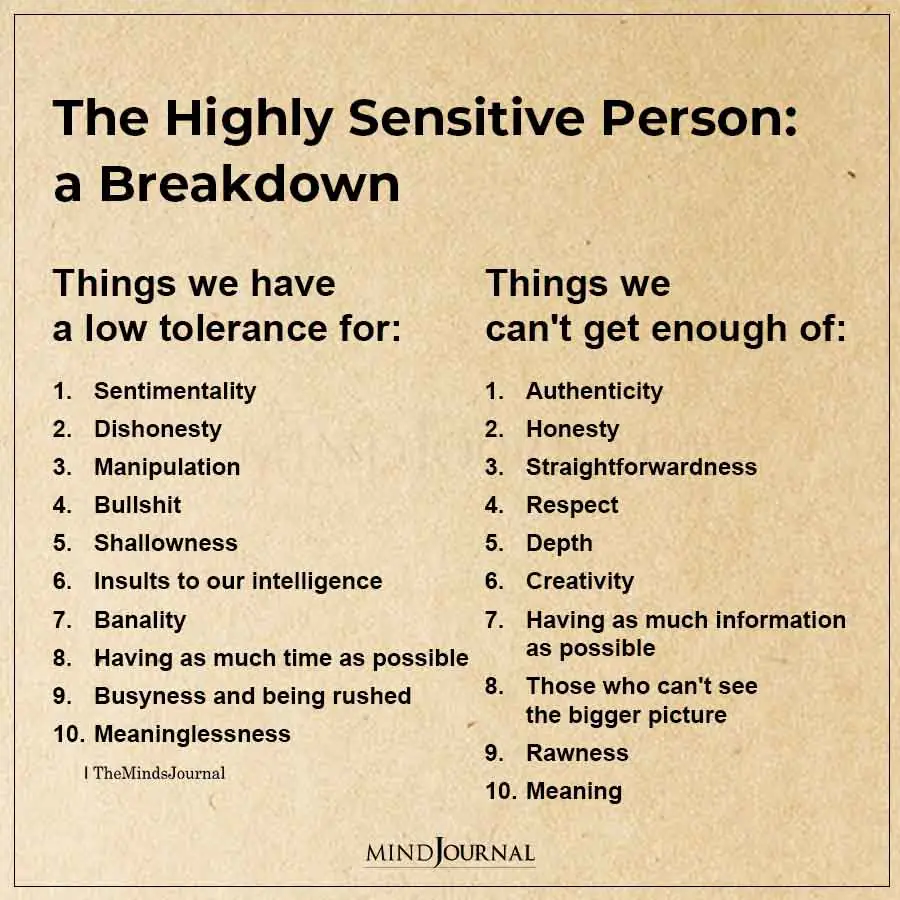
6. Electric Sensitive Person
In 1980, British researcher Michael Shallis conducted a survey of people who are electrically sensitive. It was found that most of the individuals who are highly sensitive to electricity are women. This is undoubtedly one of the rarest types of Highly Sensitive Person.
The research on highly sensitive person discovered the following fascinating findings-
- 70% of the people surveyed suffered from allergies
- 70% of respondents were uncomfortable with bright lights and loud noises
- 60% of people could sense thunderstorms beforehand and felt physically ill
- 23% of respondents were struck by lightning
- 69% of the people had experiences with psychic phenomena
7. The Overexcitables
When Polish psychologist Kazimierz Dabrowski conducted a study of gifted children, he discovered 5 aspects of high intensity where the kids were “super-sensitive” or “overexcitable”.
Here’s a quick look at the 5 areas of Overexcitabilities or gifted highly emotional people-
- Psychomotor which includes impulsive behavior, sleeplessness, physical expression of emotions and nervous habits.
- Sensual includes acute senses, need for comfort, seeking pleasure, experiencing discomfort with certain textures and prone to allergies.
- Intellectual which includes theoretical thinking, deep curiosity and a tendency to ask questions all the time.
- Imaginational includes daydreaming, love for fantasy, vivid dreams and a love for poetry, drama and music.
- Emotional which includes timidness, shyness, anxiety, loneliness, strong memory for emotions, concern for others and emotional extremes.
8. Empaths
Empaths are perhaps the most widely known types of Highly Sensitive Person. These individuals are exceptionally sensitive to emotions, moods and different mental states of other people around them. Educational psychologist Dr. Michael Smith studied empathic sensitivity and discovered that about 5 percent of the global population can be categorized as empaths. Moreover, around 25 percent of HSPs are classed as empaths.
Abigail Marsh, psychology researcher and a professor at Georgetown University found that there are distinctive differences in the brains of empaths and people who are not. Empaths are mostly sensitive to scary visuals and faces as the amygdala experiences heightened activity as a response.
What types of Highly Sensitive Person are you?
Several studies have been conducted to understand HSPs and the information above will surely help you understand what kind of a highly sensitive person you are. Once you know your particular type, you will be able to understand yourself better and will be better equipped to deal with the world.
However, you should also realize that your biggest strength and your secret weapon is your unique sensitivity. There is no need for you to be like others or try to be “strong” in the way they understand strength. You are strong in your way.
The more you embrace your true self, the stronger you will become.
Frequently Asked Questions (FAQs):
What is a highly sensitive person?
A HSP is someone who experiences external and social stimuli more deeply than others, both positive and negative. They have deeper sensory processing, increased awareness and a stronger attention to detail.
Is hsp a disorder?
No. It is not a disorder or a condition. It is a personality trait with stronger sensitivity to stimuli – social, emotional & physical. It is also known as sensory processing sensitivity (SPS).
How to deal with a highly sensitive person?
You can start by understanding their triggers, respecting their boundaries, acknowledging their emotions and paying attention to their body language. It is also important that you communicate openly and avoid invalidating their feelings.
Who are some famous highly sensitive persons?
Some well known HSPs include Martin Luther King Jr , Albert Einstein, Spencer Tracy, Greta Garbo, Nicole Kidman etc.
You May Also Like:
- 7 Tips To Deal With Emotional Flooding For Highly Sensitive People
- The Difference Between Empaths and Highly Sensitive People
- 15 Things Only Highly Sensitive People Do
- The Real Reason Why Highly Sensitive People Get Bullied
- Are you an HSP? 10 Ways To Know If You Are Highly Sensitive
